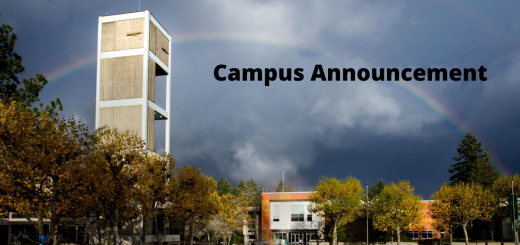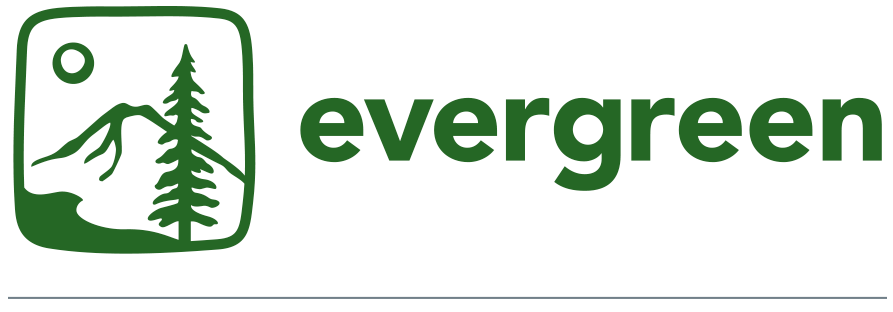Recast | New gender language guidance for evaluations
From: Academic Deans <deans@evergreen.edu>
Date: Thursday, May 27, 2021 at 9:49 AM
Dear Faculty:
As we strive to be more student-centered and to remain in compliance with current laws regarding gender identity and gender changes, we encourage you to begin writing your student evaluations without any pronouns starting this quarter, Spring 2021. Describing students’ work without pronouns may mean a shift for some of you; others are already doing this.
We make this request for a number of reasons:
- Evaluations are a time to reaffirm student work. Gender identity may change over time and pronouns in the permanent record may not be the best way to align with gender identity into the future.
- If and when students do change their gender identity, we then face the prospect of needing to retroactively change records, a significant undertaking and staffing issue.
- Our campus climate survey shows that our trans and non-binary students consistently report some of the lowest indicators of value and belonging at Evergreen. Changing our practices with pronouns in written records is one step in creating a more positive, less discriminatory climate that fosters student success.
- Use of “they/them” in the singular has been a way to meet requests from some students but does not meet the needs of all students. We encourage you not to use they/them for all students. Writing without any gender pronouns is a preferred route.
For these reasons, we highly recommend that you shift your evaluation writing in this direction. This shift in your evaluation writing practice will lead to more equitable outcomes for both students and staff (who would potentially need to change records later).
We want to emphasize that while eliminating pronoun usage in evaluations is supportive of students, affirming students’ pronouns and avoiding misgendering in our classrooms fosters students’ sense of value and belonging. Please continue to affirm preferred pronouns in communications with all students.
We are providing some fictionalized evaluation samples (below). Focusing on the work can be a way to make the shift.
Thank you for your participation in this important and necessary shift in the writing of student records.
Best wishes for a successful close to your Spring 2021 quarter,
The Academic Deans
Registration and Records
Title IX
Inclusive Excellence & Student Success
Sample Evaluation #1: Karen Gaul
Building Sustainable Communities
River Forest successfully achieved all of the learning objectives in this program with high quality work. River had good attendance and actively participated in all aspects of the program, demonstrating a dedication to advancing skills through multiple modes of inquiry.
Weekly readings and written responses were a cornerstone of our work in bringing critical perspectives to sustainability literature. River wrote thoughtful responses to all of the readings, demonstrating a good ability for critical analysis and a very good understanding of program materials. River was a thoughtful participant in seminar discussion demonstrating careful listening to different perspectives and offering inviting questions for consideration.
In Ethnographic Methods workshops, River worked to develop skills in methods for gathering data about neighborhood assets and gaps. In workshops on developing research questions, formulating relevant interview questions, practicing interview techniques, transcription protocols, and analysis of transcripts, River participated fully and demonstrated competency when applying these techniques in the field. The transcriptions from neighborhood interviews were exceptionally well done.
In the community mural project, River participated in applying theories of art as social practice in a local setting. Teams of students worked with the City of Olympia to design and submit ideas, drawing from a rich history of community mural projects. River’s group led the final design plan and were critical leaders in bringing the project to completion. This meant navigating city policies and protocols for mural installation.
River submitted all required drafts of assignments meant to develop persuasive writing skills in writing for change. These submissions demonstrated a willingness to participate in the peer critique and revision process. Clear growth and development were obvious throughout the quarter, with excellent results. River took the extra step to submit a letter the Olympian newspaper about the possibilities for an EcoDistrict in the City, which was published.
Overall, River’s dedication to developing skills in all areas of the program resulted in excellent work. River demonstrated leadership, respect and inclusivity in all aspects of the program.
Credit Equivalencies:
4 – Critical Sustainability Studies
4 – Ethnographic Methods
4 – Community Projects: Sustainable Communities Mural
4 – Writing for Change
Sample Evaluation #2: Greg Mullins
Anthony, who goes by Toni, successfully completed Queer Pleasure and Politics. Toni attended virtually every program meeting and participated actively. Toni’s work was characterized by an advanced understanding of the material, intense dedication to learning the material well, and openness to challenging new ideas.
The first major assignment was to collaboratively create a digital “map” of queer pleasure sites in the local area by way of forging a critical understanding of gender and sexuality in relation to public and private space. Toni brought extraordinary insights to this project by, for example, including both sociality and freedom from sociality as “spaces” that need to be mapped onto physical geography. Toni’s work was conceptually sophisticated, and loosened the idea of queerness away from a simplistic understanding of identity and into territories of limits, loss, and practice. Toni’s creativity and analysis in this project were excellent.
The second major assignment was to collaboratively script and produce a faux television talk show in which the participants explored questions of representation, entertainment, intention, audience, playfulness, and queerness. Toni’s group produced the show It’s Five O’Clock Somewhere, in which host Joan Crawford interviewed Samuel Delaney, Sara Warner and Dr. Frank N Furter from The Rocky Horror Picture Show. This project explored several crucial concepts including the realness and artifice of melodrama, the exploitative character of talk shows, and the capacity of joy and gaiety to unleash new forms of knowledge, commitment, sociality, and cultural politics. Toni collaborated in all areas of creating the show, most especially finding audio packages and operating a camera. Toni’s work was excellent, and led to a sharp understanding of the multiple regimes of private and public as deployed in mainstream and queer media.
Toni also wrote weekly self-reflections to connect ideas across texts and to take ownership over what was being learned. Toni’s work in this area was excellent. Week after week the reflections centered on crucial idea, offered original connections across texts, and posed challenging questions about the material. Toni’s writing demonstrated a deep understanding of the most abstract and challenging concepts presented in the program, and a capacity to use those concepts as tools to advance new ways of thinking about gender and sexuality.
Seminar discussions were central to the work of the program. Toni participated as an active listener in seminars, and on occasion offered comments that demonstrated a careful assessment of the ideas of others and a sharp understanding of the films and texts under discussion. The seminar would have benefited from hearing from Toni more often.
Overall, Toni demonstrated an outstanding understanding of current trends in queer studies in the United States, with an emphasis on understanding linkages among interpretation, representation, performance, gender, sexuality, pleasure, and cultural politics.
EQUIVALENCIES: TOTAL CREDITS EARNED: 16
5 — Media Studies
5 — Cultural Studies
6 — Queer Studies



